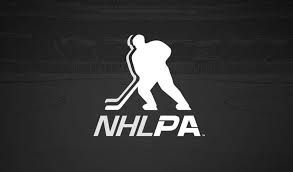Don’t Expect The NHLPA To Change Under Its New Executive Director
Reports last week indicated the NHL Players Association is set to hire Marty Walsh to replace Donald Fehr as their executive director. Walsh, 55, is currently the US Secretary of Labor, the former mayor of Boston and the former head of Boston’s Laborers’ Union.
Adam Proteau, my colleague at The Hockey News, is skeptical that Walsh’s impending hiring signals a tougher stance by the PA in negotiations with the NHL and its commissioner, Gary Bettman. He anticipated that the status quo will continue with the players lacking the stomach for a new labor war.
 Perhaps Walsh will surprise us and mobilize the players for a more robust bout of negotiations when the current collective bargaining agreement (CBA) expires at the end of the 2025-26 season. However, I concur with Proteau’s take that this is unlikely to happen.
Perhaps Walsh will surprise us and mobilize the players for a more robust bout of negotiations when the current collective bargaining agreement (CBA) expires at the end of the 2025-26 season. However, I concur with Proteau’s take that this is unlikely to happen.
There are no more radicals left in the NHLPA. Bettman crushed them all during the season-killing lockout of 2004-05. Apart from a handful of outspoken personalities such as player agent Allan Walsh, there are no firebrands among the players or their representatives demanding radical changes to the CBA.
A small handful of players (Boston’s Patrice Bergeron, Minnesota’s Marc-Andre Fleury, Carolina’s Brent Burns, Florida’s Eric Staal, Buffalo’s Craig Anderson) remain in the NHL from that nuclear winter of ’04-’05. They were mere rookies back then who probably didn’t fully understand what the labor standoff was about. Given their status at that time, they would’ve had little say about the PA’s direction during that labor battle.
Many of the players at that time had been around for the seismic shift in the PA during the late-1980s and early-1990s, from the ouster of Alan Eagleson to the hiring of Bob Goodenow as executive director, through their successful strike in 1992 and the 1994-95 lockout in which the NHL owners caved despite the objections of Bettman.
The bruising smackdown Bettman and the NHL owners laid on the NHLPA was devastating. It resulted in several years of upheaval and changes in the PA leadership until the players hired Donald Fehr as executive director.
While the issues that led to the 2012-13 lockout weren’t as contentious as in ’04-’05, it was clear there wasn’t as much fight among the players going into that standoff as there was in 2004.
The ’12-’13 standoff could be considered a draw. Nevertheless, it showed that the veteran players who’d been around during the season-killing lockout of ’04-’05 didn’t want to risk losing another season. In the end, they settled.
Many of the players who were part of the last lockout are now at the tail end of their NHL careers or playing out their remaining days in Europe or retired. Those who entered the league since 2013 have displayed no indication that they’re prepared to dig in for a contentious battle with the league in the next round of collective bargaining.
Today’s NHLPA membership may have concerns over certain aspects of the salary cap. They may hate escrow with the intensity of a thousand suns. They could wish to end contract term limits. They could demand more Olympic participation.
None of it matters, however, if they aren’t willing to fight for it.
The players may grumble about escrow clawbacks but they aren’t willing to upset the applecart regarding labor relations with the league. There are no public calls for a change to the current salary-cap system and no demands to replace it with a luxury tax. They’re not threatening to decertify the union, turning all the players into unrestricted free agents able to negotiate with any team they choose.
Prior to the pandemic, the league and the PA engaged in cordial discussions about extending the CBA with some minor adjustments. The uncertainty caused by the pandemic in 2020 led to the memorandum of understanding (MOU) that extended the agreement to 2026.
The league didn’t want anything endangering negotiations for lucrative new broadcasting, gambling and streaming deals. Meanwhile, the players didn’t want to jeopardize their chances for lucrative new contracts via free agency.
As for Shaw, he isn’t simply an empty suit filling the PA role. He’ll counsel the players on the issues and seek the best way of addressing their concerns. He’ll also take point in any negotiations with Bettman like Fehr before him.
But at the end of the day, as Proteau pointed out, he’s limited by the players. If they’re unwilling to fight the current system (and by the look of things, they are) he’ll simply have to work within it and accept things as they are.

The only players that should fight the system are the ones who can’t. Bedard for example. The players will feast on their young and the owners will profit. It’s the union way.
Seems weird that forced membership and dues to the union is even allowed. It’s been ruled out in the US in several courts. Yet all the sports force it upon you. Strange
There will always be things that either side wants. Personally, I’d like to see shorter contract terms, but this would likely reduce the Free Agency age to 25, so it’s not really worth it.
In the end, the players & owners ARE partners. They split revenues 50-50, and the owners pay all expenses from their half. I can’t imagine a fairer system than that.
Get it done when the time comes.
If the players wanted to “win” they’d have to give up close to 2 years of their careers at minimum. It’s just way too hard to get any kind of majority to agree to that sacrifice.